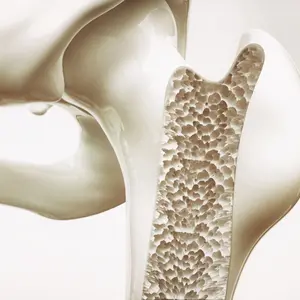

Chronic Conditions and Diseases

Chronic Conditions and Diseases
Hypothyroidism: Are We Overmedicating?
One of the most commonly prescribed medications in the United States is thyroid hormone, principally levothyroxine. In 2016, prescriptions reached 11.6 million, up from 8.9 million in 2007, 97% of which were for levothyroxine.
Levothyroxine is prescribed mainly for hypothyroidism, where the TSH (thyroid stimulating hormone) level is increased and the FT4 level is low. More common is subclinical hypothyroidism where FT4 is normal and TSH is increased. Controversially, the latter condition accounts for a significant number of prescriptions.
A study, published in JAMA Internal Medicine in 2021, aimed to examine the use of levothyroxine in the US over a span of time, from 2008 to 2018. Researchers used a large database of commercially insured and Medicare Advantage enrollees containing information on labs and prescriptions, although the patients were unidentified.
Adult patients who recently started on levothyroxine and had a TSH measured within three months prior to starting medication were identified. Those with a history of thyroid surgery, thyroid cancer, central hypothyroidism, and those who were pregnant were excluded from the study.
Over 110,00 patients were identified over the ten-year period, with the average age being 46. Approximately 75% were women. Just over 8% of patients had overt hypothyroidism, slightly more than 30% had normal thyroid function, and the remainder were classified as having subclinical hypothyroidism.
Researchers determined that only 10% of patients had overt hypothyroidism prior to hormone treatment, and approximately 30% of prescriptions appeared to be for patients with normal thyroid function. Thyroid hormone treatment for patients with normal thyroid function is considered to be of no benefit while treatment for those with subclinical hypothyroidism is of debatable value.
The study had limitations in that it was not known how many patients were diagnosed with hypothyroidism and were previously on levothyroxine. Further, it was not known how many patients with subclinical hypothyroidism had symptoms or whether any of these had underlying autoimmune thyroiditis.
The study does, however, suggest that many patients may be unnecessarily on medication. Further, TSH increases with age, and treatment of subclinical hypothyroidism is of questionable benefit to those 65 and older. Thyroid-related symptoms may have other causes and it’s important that patients discuss treatment expectations and risks with their physician.
REFERENCES
Safran, M. (2021, November). Hypothyroidism: You may not need to stay on thyroid hormone replacement indefinitely. American Thyroid Association. https://www.thyroid.org/patient-thyroid-information/ct-for-patients/november-2021/vol-14-issue-11-p-9-10/


 By
By







